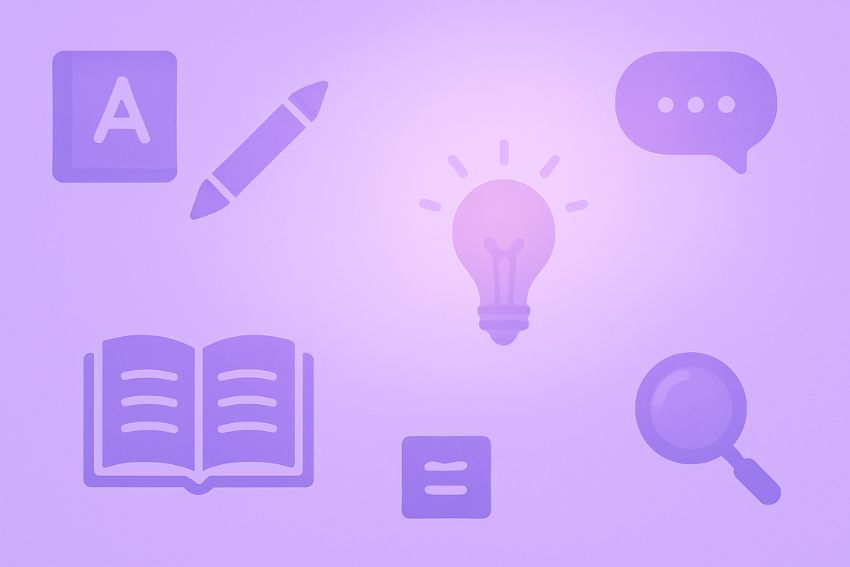Preparing for A Levels can feel overwhelming, especially when every subject demands focused revision. That’s where a CGP revision guide becomes your best friend. These books are trusted by thousands of students and teachers across the UK for their clear explanations, concise summaries and exam-focused questions. Whether you’re studying AQA, OCR, or Edexcel, CGP offers versions tailored to your exam board, so you can revise exactly what’s needed.
In this guide, we’ll help you choose the best CGP Revision Guide for your subjects, compare the different formats and share our top recommendations for popular A Level courses. Let’s revise simpler and more effectively, one subject at a time.
CGP Formats Explained – Which One to Pick?
CGP offers several types of revision resources, each designed for a slightly different learning style. Here’s a quick look at what each format includes and when to use it.
- Revision Guide (notes + quick checks)
Perfect for getting to grips with topics the first time or doing a quick recap before tests.
Choose this option if you want concise, easy-to-understand explanations without feeling overwhelmed. - Complete Revision & Practise
Combines clear topic summaries with exam-style questions and answers in one handy book. Many also include an online edition for on-the-go study.
Choose this if: you prefer everything in one place: notes, practise and quick tests. - Workbooks / Exam Practise Books
Packed with topic-by-topic questions to strengthen recall and exam technique. They align with the revision guides and are often available in bundles for added value.
Choose this if: you learn best by practising regularly and want to spot gaps in understanding. - Flashcards
Short, sharp revision prompts covering key terms, equations and definitions. Ideal for memorising facts or quick sessions on the bus.
Choose this if: you like active recall and need a fast, flexible way to test yourself.
Each CGP format complements the others, so you can start with a Revision Guide and build a full set with Workbooks or Flashcards as exams approach.
Pick the Right CGP Guide For Your Exam Board
Before buying any CGP Revision Guide, make sure it matches your exact exam board and specification. A Level courses differ slightly between AQA, Edexcel (Pearson) and OCR, so the right match ensures every topic you revise actually appears in your paper. Here’s a quick checklist to help you choose correctly:
- Check the title carefully – every CGP book clearly states the exam board (e.g. AQA A Level Biology or Edexcel A Level Economics).
- Look for the year or specification code – exam boards update specs occasionally, so confirm your book covers the version taught at your school or college.
- Double-check with your teacher – a quick ask can save you from buying the wrong edition.
For A Level Maths, some students prefer the exam board’s own resources, especially for Edexcel, as they mirror the exact question style. Still, CGP guides are excellent for concise notes, formula summaries and extra practise. Pairing both can give you the best of clarity and precision.
CGP vs Other Brands (Quick Compare)
While CGP remains the go-to choice for many A Level students, it’s worth knowing how it stacks up against other popular publishers. CGP books stand out for their punchy explanations, humour and loads of practise questions, ideal for quick understanding and consolidation. Pearson Revise is particularly strong if you’re sitting Edexcel exams, offering a clean, topic-per-page layout with useful examiner tips. Collins focuses on clear structure and visual organisation, which some students find easier for long-term study planning.
Each brand has its strengths, so there’s no single “best” option. Use one brand as your base, then top up with past papers for complete preparation.

A Level Subject by Subject Picks
Every subject has its own challenges, and CGP designs guides that match each one. Here’s a quick rundown of which format works best for popular A Level courses.
Maths
Start with the Complete Revision & Practise guide for clear explanations and worked examples across pure, mechanics and statistics. Add Workbooks for extra topic-based drills and timed question sets. High scorers often mix CGP with their board’s own materials for advanced problem practise.
Biology / Chemistry / Physics
The Complete Revision & Practise guides cover content and exam-style questions side by side, helping you link theory to application. Add Exam Practise Books for deeper work on required practicals, data interpretation and analysis questions. These titles mirror real paper styles and are perfect for mastering scientific command words.
Psychology / Sociology
CGP guides for these subjects break down key studies, definitions and evaluation points in simple language. They’re great for quick topic reviews before essays or mock exams. Combine them with Flashcards to reinforce AO1 knowledge and AO3 evaluation skills through short, active recall sessions.
Business / Economics / Geography
Go for the CGP revision guide plus matching Workbooks to practise data-response and case-study questions. CGP keeps definitions and models straightforward while helping you master command words like “analyse” and “evaluate”. Perfect for building exam technique and structured answers.
English Language / Literature
Use CGP’s revision guides to review important literary terms, language techniques and exam strategies. They’re brilliant for brushing up on analysis skills and essay planning. Still, make sure to pair them with your set-text editions and model essay collections for the most accurate preparation.
How to Use a CGP Revision Guide for Maximum Marks
Getting the most out of your CGP Revision Guide isn’t just about reading it cover to cover; it’s about using it strategically. Follow this simple five-step method to turn your revision into real results:
- Map the spec to chapters first
Before you start, match each chapter to your exam board specification. This ensures you’re covering every topic you’ll be tested on. - Active notes
Read one sub-topic at a time, then close the book and write down everything you remember. This helps your brain recall information instead of just recognising it. - Mini-quizzes after each section
Use the quick questions in the guide or workbook to test understanding straight away. It’s a simple way to spot weak areas early. - Past papers weekly
Practise full exam papers under timed conditions, then mark your answers with the official mark scheme. Pay attention to command words and how marks are awarded. - Flashcard refresh
Go over key definitions, equations, or quotes every day using flashcards. Short, regular sessions help lock information into long-term memory.
CGP guides are intentionally concise, giving you clear summaries instead of overwhelming detail. Pair them with plenty of practise questions and past papers to push from good grades into top-band performance.
CGP Revision Guide: Common Pitfalls to Avoid
Even the best revision guide won’t help if it’s used the wrong way. Watch out for these common mistakes:
- Leaving required practicals or essays until the last minute, practise these early to build confidence and accuracy.
- Buying the wrong exam board or an outdated specification, always double-check before you buy.
- Only reading instead of practising, active learning beats passive reading every time.
- Ignoring examiner language and command words, knowing what “analyse” or “evaluate” means can make or break your answer.
CGP Revision Guide – Budget and Bundles
CGP makes it easy to save money without compromising on quality. Many titles come in money-saving bundles, often combining a revision guide with a workbook or an online edition at a lower price. A practical approach is to start with a solid base guide, such as the Complete Revision & Practise book, then add one practise book for focused question drills. If you’re watching your budget, you could share a copy with a friend or buy second-hand, but always check that the edition matches your exam board and that any online access codes are still valid before purchasing.
Conclusion
The key to A Level success is consistency and the right tools. Start by choosing the CGP guide that matches your exam board, then study a little and often to keep topics fresh. Combine revision with regular timed practise to build confidence for exam day. If you ever need extra support or tailored explanations, consider online tutoring to strengthen tricky areas and get expert feedback. A good tutor can help you use your CGP Revision Guide more effectively, turning structured study into steady progress and top-grade results.








